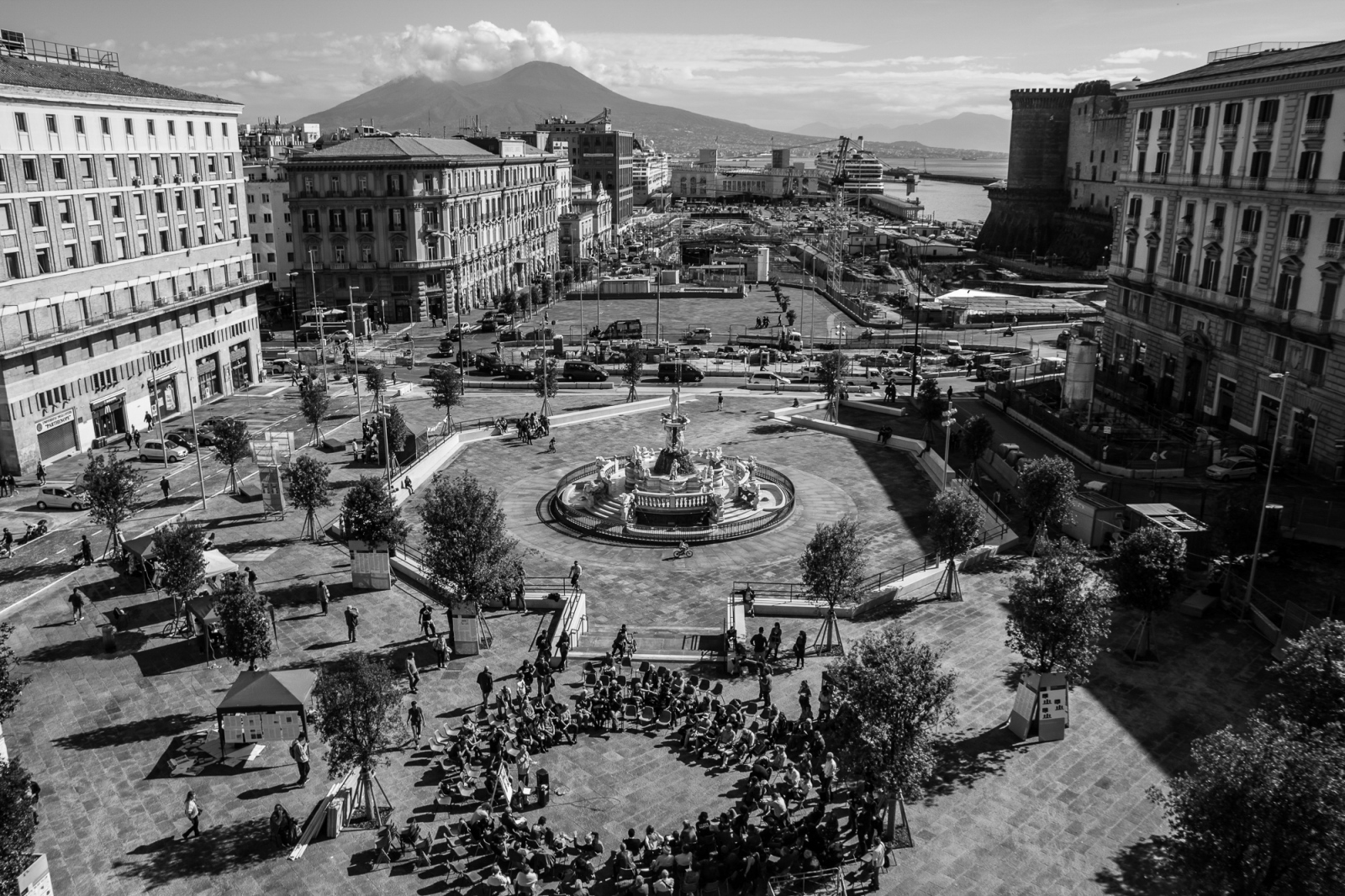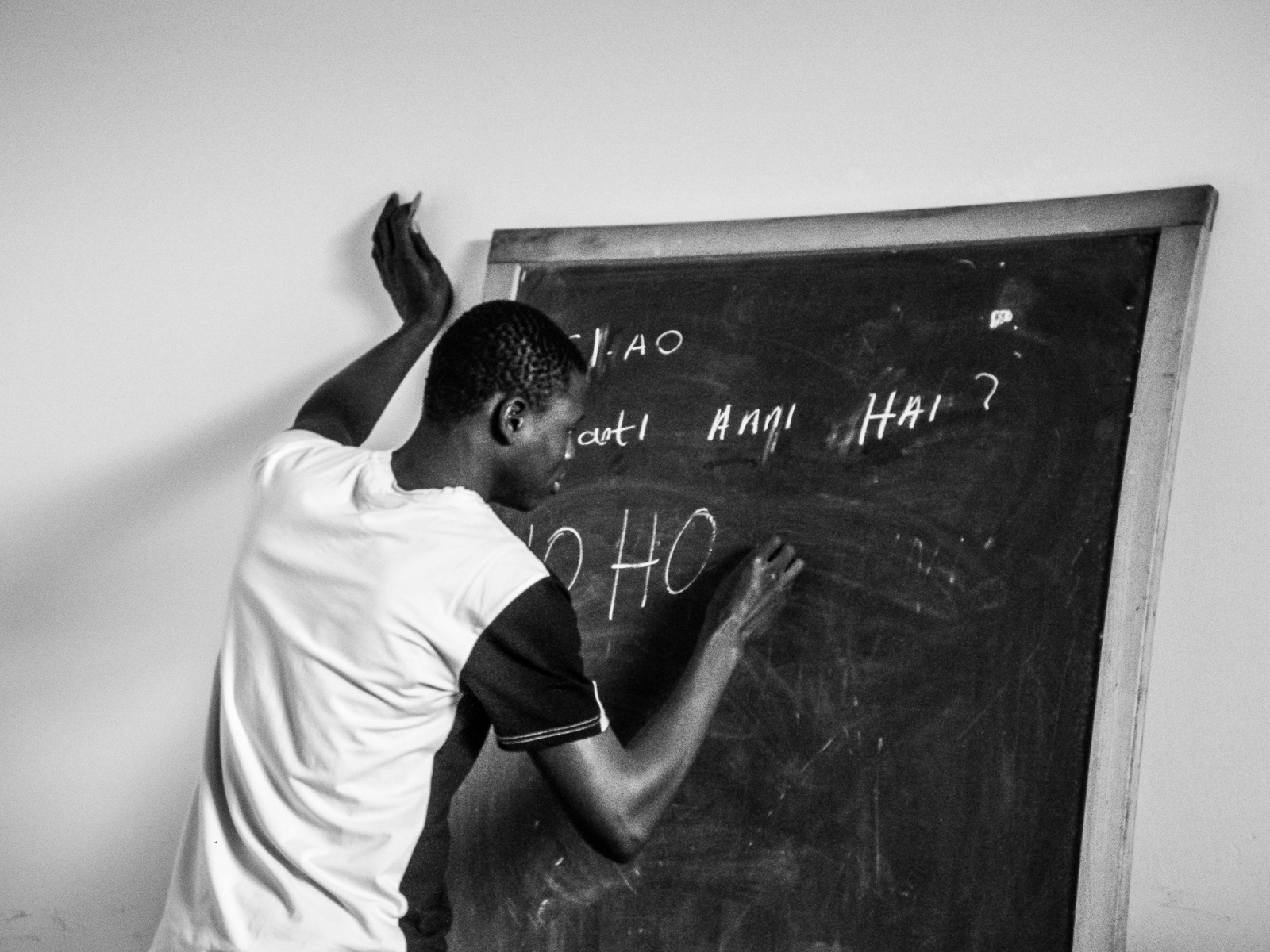“Asilo” translates as “kindergarten” and “refuge”. Accordingly, this is a place where to learn from the peaceful interaction with others. But it also is a space where to develop artistic, cultural and social projects for free. Hence, a refuge for many artists, researchers and educators. I was one of them when I firstly entered to this majestic World Heritage palace in the core of Naples. A place where happiness means co-sharing, mutual help, and fairness. And freedom mainly means participation, as in the renowned 1973 revolutionary song by the renowned revolutionary singer, composer, actor, and playwright Giorgio Gaber.
The l'Asilo is difficult to describe with words, but the beauty of its daily practices can be easily shaped through visuals. Based on the idea that culture is an essential right and its free production and share contribute to the collective welfare ("social income"), this multifunctional center promotes the return to the most elementary human relations, through cooperative, non-competitive and interdependent actions.
Fascinated by the communitarian attitude of its “residents”, I have documented its story. A story that has also become the story of Naples and its rebirth; as the story of a network of municipalities that represent a different Europe, torn away from the general neoliberal radicalization of every field of living.
As photographers and journalists, I believe it is our duty to shed a light also on less- sensationalistic positive stories left apart from mainstream news. As they may illustrate alternative solutions to the main global contemporary issues.
‘If Art Can Change the World’ by Sabrina Merolla | Readymag
Sixty-six percent of world population will live in cities by 2050. With such unprecedented pace of urban growth, achieving the sustainable development of urban areas has become a crucial challenge of the 21st century. Only in 2017, the need for...













